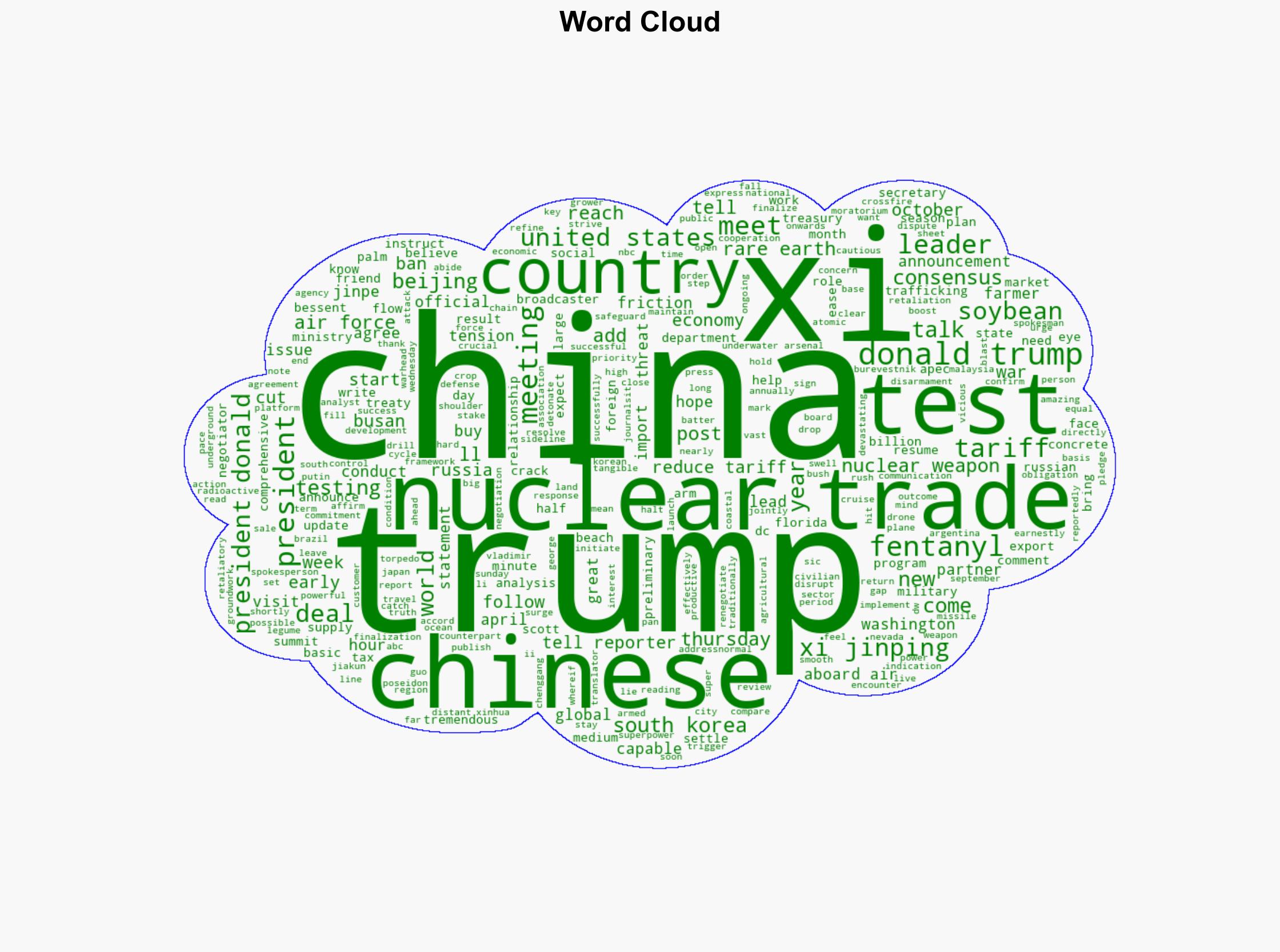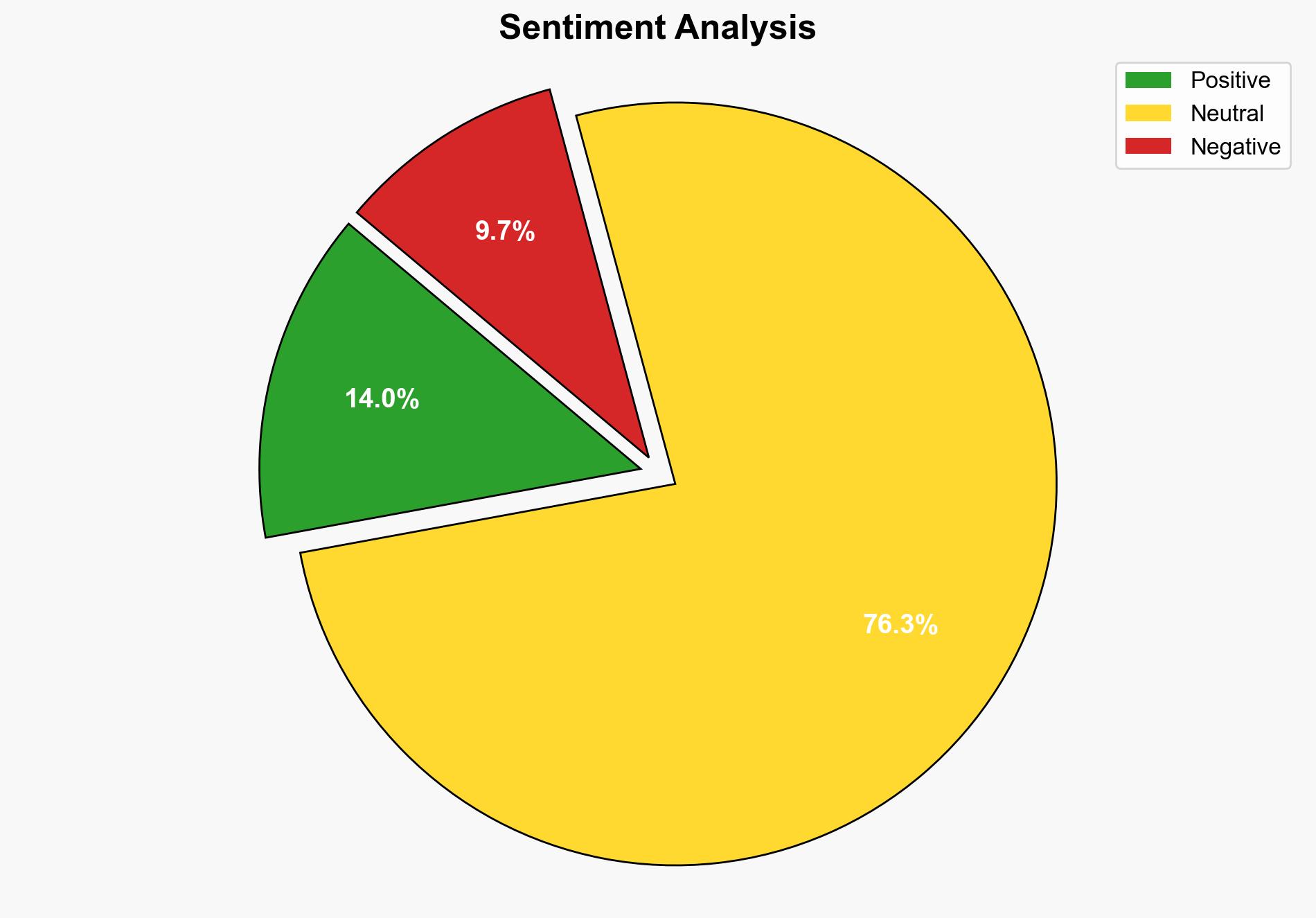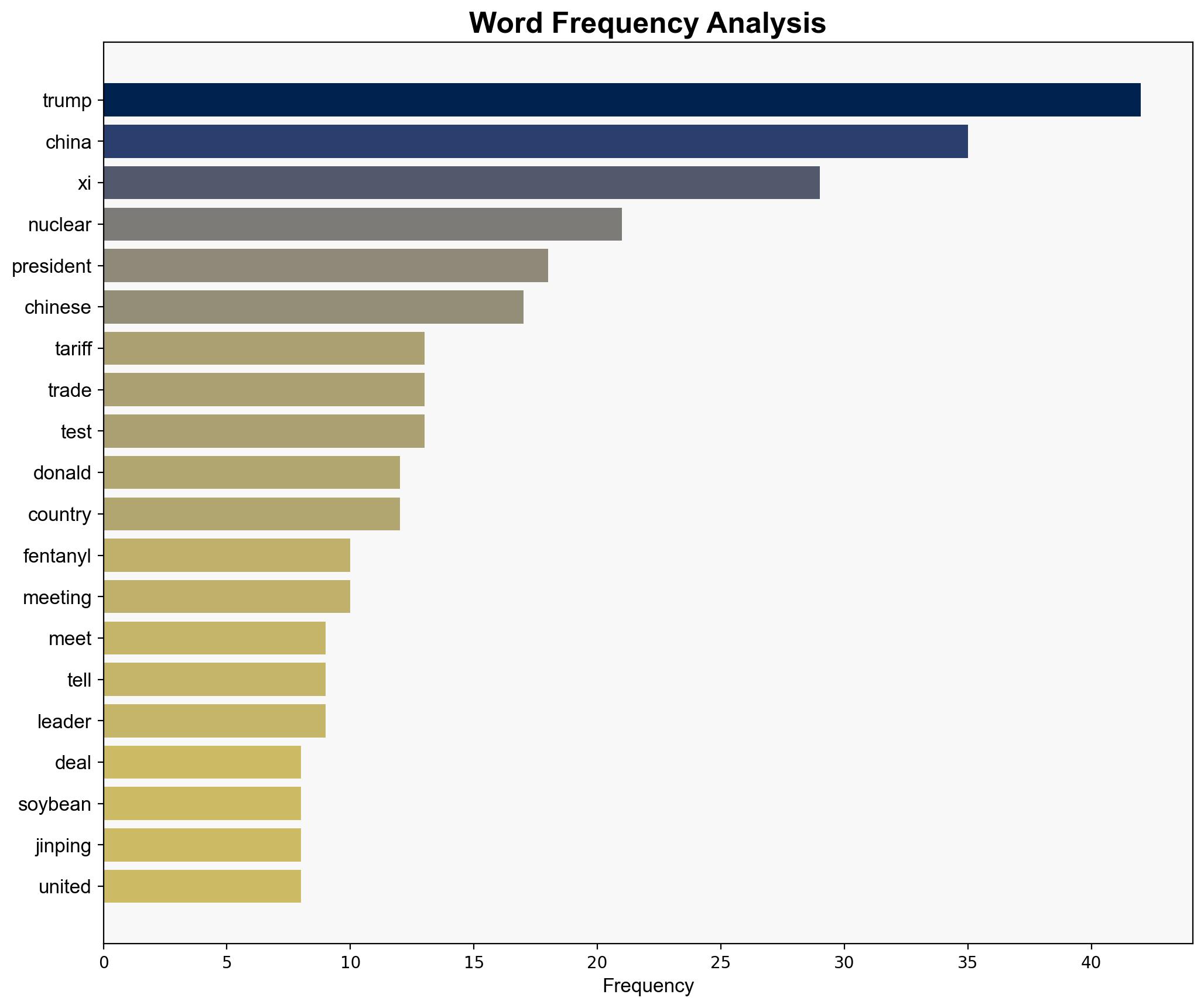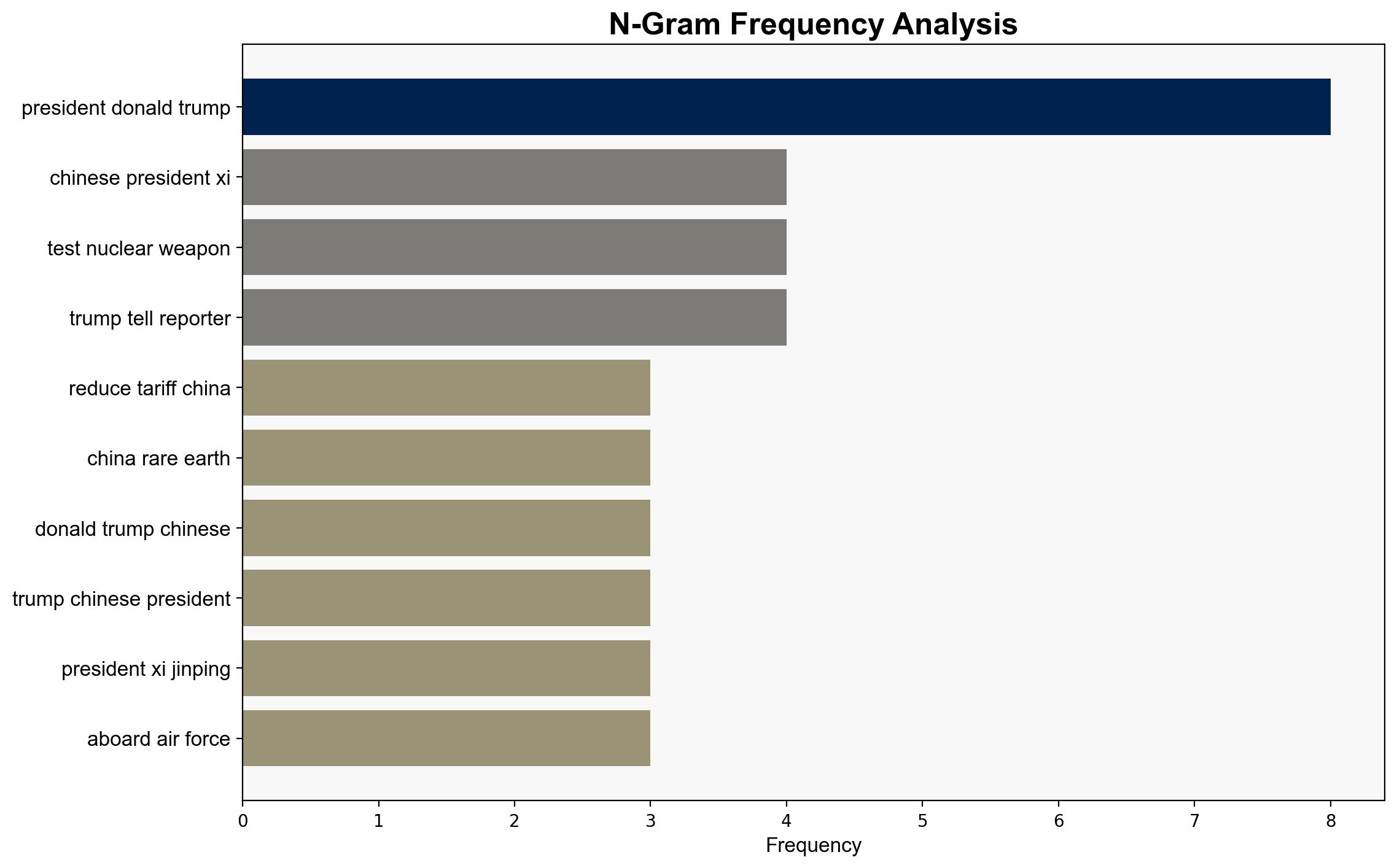Donald Trump departs South Korea after talks with Xi Jinping – DW (English)
Published on: 2025-10-30
Intelligence Report: Donald Trump departs South Korea after talks with Xi Jinping – DW (English)
1. BLUF (Bottom Line Up Front)
The meeting between Donald Trump and Xi Jinping in South Korea suggests a potential easing of trade tensions between the U.S. and China, with a tentative agreement to reduce tariffs and increase trade cooperation. The most supported hypothesis is that this meeting is a strategic move to stabilize economic relations amidst ongoing global tensions. Confidence level: Moderate. Recommended action: Monitor follow-up actions and verify commitments to assess the durability of this agreement.
2. Competing Hypotheses
1. **Hypothesis A:** The meeting signifies a genuine breakthrough in U.S.-China trade relations, leading to a sustained reduction in tariffs and increased cooperation on key issues like rare earth exports and fentanyl trafficking.
2. **Hypothesis B:** The meeting is primarily symbolic, with limited substantive progress. The agreement may serve as a temporary de-escalation tactic without addressing underlying trade and geopolitical tensions.
Using ACH 2.0, Hypothesis A is better supported by the reported agreements on reducing tariffs and commitments to increase trade. However, Hypothesis B remains plausible due to the lack of detailed implementation plans and historical volatility in U.S.-China relations.
3. Key Assumptions and Red Flags
– **Assumptions:** Both parties are acting in good faith to resolve trade tensions. The commitments made are feasible and will be implemented.
– **Red Flags:** Lack of specific timelines and mechanisms for enforcement. Historical context of previous agreements that were not fully realized.
– **Potential Cognitive Bias:** Optimism bias in interpreting diplomatic language as concrete progress.
4. Implications and Strategic Risks
– **Economic:** A reduction in tariffs could stabilize global markets and improve economic outlooks for both countries.
– **Geopolitical:** Failure to implement agreements could exacerbate tensions, impacting global supply chains and regional stability.
– **Psychological:** Public perception of improved relations may be short-lived if tangible results are not observed.
5. Recommendations and Outlook
- **Mitigate Risks:** Establish a monitoring mechanism to track the implementation of agreements and ensure compliance.
- **Exploit Opportunities:** Encourage diplomatic engagement to address other contentious issues, such as cybersecurity and intellectual property rights.
- **Scenario Projections:**
– **Best Case:** Full implementation of agreements leads to a new era of U.S.-China cooperation.
– **Worst Case:** Breakdown in talks results in renewed tariff escalations and economic instability.
– **Most Likely:** Partial implementation with ongoing negotiations to address unresolved issues.
6. Key Individuals and Entities
– Donald Trump
– Xi Jinping
– Guo Jiakun (Chinese Foreign Ministry Spokesman)
7. Thematic Tags
national security threats, trade negotiations, U.S.-China relations, geopolitical strategy





